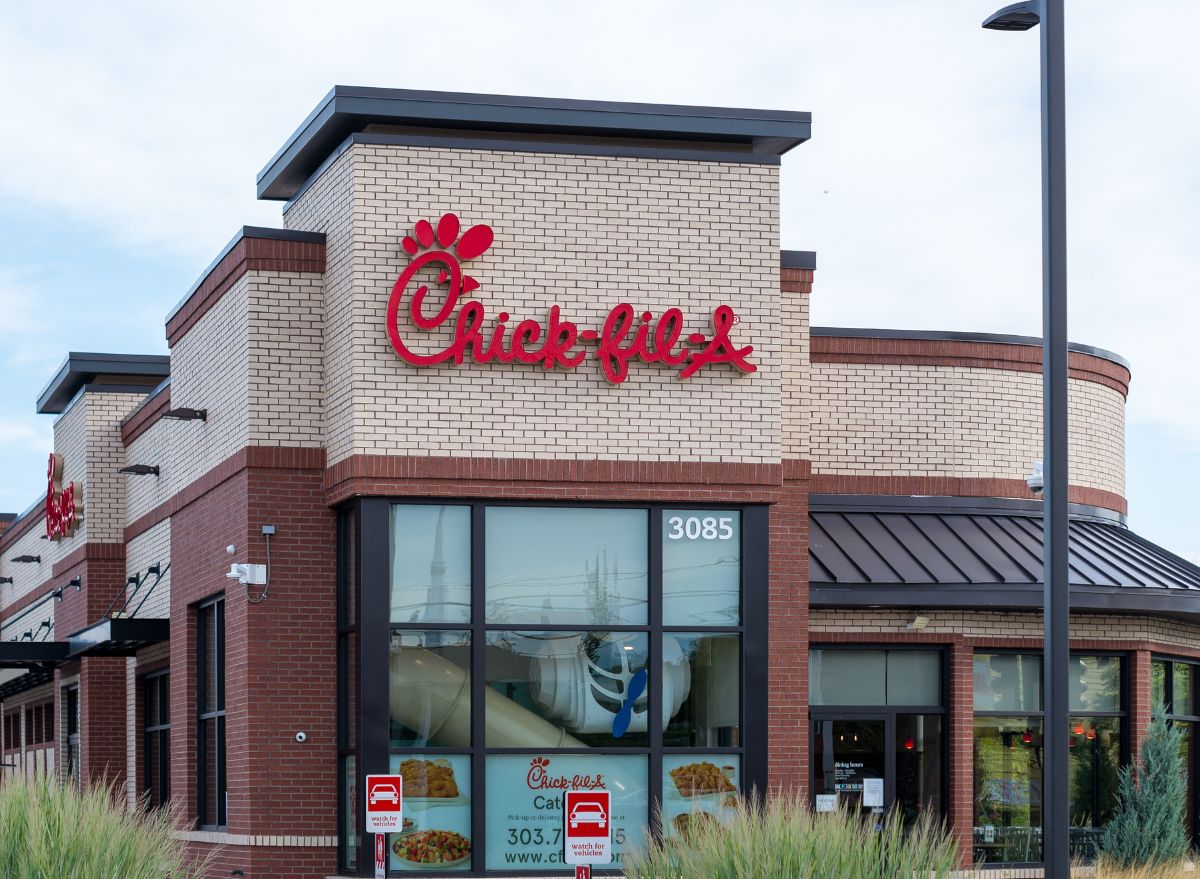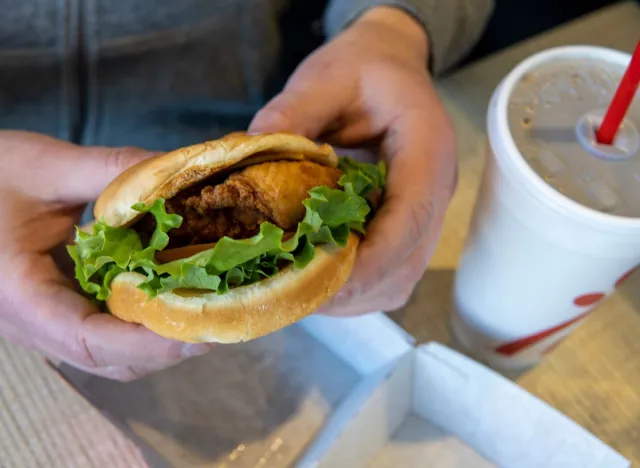Chick-fil-A Just Made a Major Change to the Quality of its Chicken

If there’s one key thing that Chick-fil-A is known for—aside from its famously friendly service and iconic signature sauce —it’s the quality of its chicken. The chain has long touted the fact that it only uses whole boneless chicken breasts with no added fillers, steroids, or hormones, which Chick-fil-A says helps preserve the natural flavor of the poultry. However, one key part of Chick-fil-A’s chicken quality stance is slated to see a major change very soon.
Chick-fil-A just announced via an update posted on its website that it plans to shift its No Antibiotics Ever (NAE) policy on chicken to No Antibiotics Important to Human Medicine (NAIHM). The change, which Chick-fil-A attributed to supply issues, will be implemented starting this spring.
In general, NAE means that chickens or other livestock are raised without any antibiotics whatsoever. Meanwhile, NAIHM means that antibiotics can be used to treat animals when they become sick, but the use of antibiotics that are important to human medicine and commonly used to treat people is restricted.
Chick-fil-A committed to serving only 100% antibiotic-free chicken back in 2014 and finally completed the transition in 2019, USA Today reported. But now that it’s switching to the NAIHM policy, this means that the chicken Chick-fil-A serves may be administered antibiotics sometime during its lifespan.

Livestock producers have long used antibiotics to keep their animals healthy and to help promote fast growth and weight gain to boost their profits. However, the practice has come under increasing scrutiny in recent years as research indicated that the widespread presence of antibiotics in meat was making humans more resistant to drugs and antibiotics—and more vulnerable to illness as a result.
Many countries have taken action to limit antibiotics in meat. The European Union, for example, took the major step in 2022 of banning the routine use of antibiotics in animals to prevent disease, limiting their use to when animals are actually sick. But according to a review of existing research on meat in antibiotics that was published in 2022, 33,000 people still die each year due to infections caused by antibiotic-resistant bacteria.
Chick-fil-A’s announcement stressed that it is still committed to serving high-quality white breast meat with no added fillers, artificial preservatives, steroids, or added hormones. The chain also said that it’s “constantly evaluating” its animal policies using feedback from an Animal Wellbeing Council of outside experts it created.
Chick-fil-A isn’t the only major company to ease its policies on antibiotics in chicken recently. Reuters, citing internal company documents, reported earlier this month that Panera Bread will soon start permitting some antibiotics in its pork and turkey products. Tyson also announced last year that it was moving away from its previous NAE standard and would start allowing antibiotics not important to the treatment of humans in its chicken, the Wall Street Journal reported.









